
OR
Recruiting for PSC vacancies gets thorny as protests turn aggressive
Published On: July 18, 2019 06:00 AM NPT By: Ashok Dahal | @ashokpillar
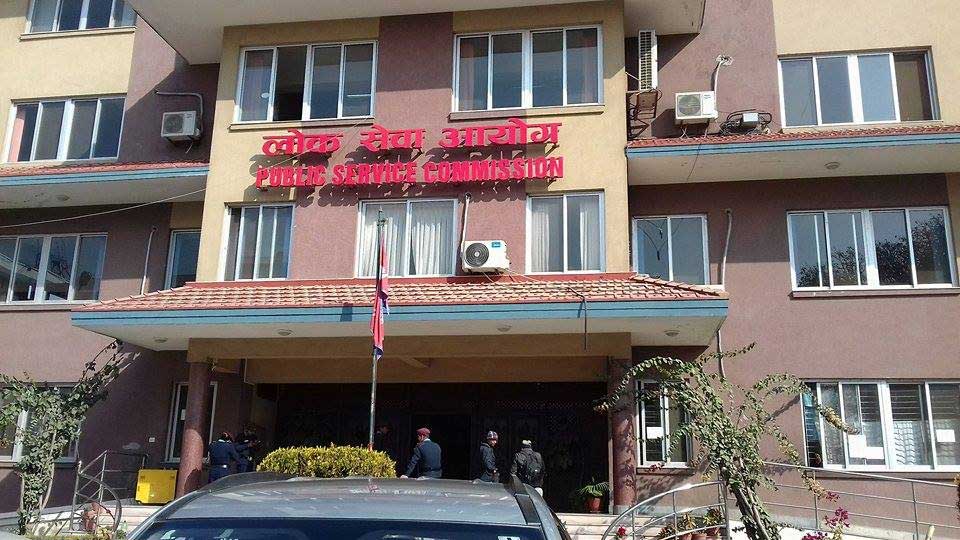
KATHMANDU, July 18: Nearly 400,000 youths are going to appear in the Public Service Commission (PSC) examinations from Friday for filling 9,161 vacancies at 515 local units across the country.
As the protesters against the recruitment process become more aggressive with threats to disrupt the examinations, the candidates are feeling a measure of anxiety.
People from various ethnic communities, Madhesis, Dalits, Muslims and other groups protested as soon as the PSC called for the applications on May 29 to fill the huge number of vacancies all at one go.
They have alleged that the vacancy announcement is against the policy of proportional and inclusive representation envisaged by the constitution.
Assistant spokesman at the PSC, Devi Prasad Subedi, said that the examinations will go ahead despite the protests. “The PSC is fully prepared for the examinations. We will conduct them as per schedule and it is the government's duty to provide the security,” he said.
Protesters said they had to take to the streets as nearly 1,800 seats have been axed from the 4,025 seats that need to be allocated under the constitutionally provisioned reservation quota of 45 percent. In its vacancy notice, the PSC has reserved only 2,262 seats.
“The PSC has issued the vacancy notice against the constitutional spirit and legal provisions. It has also refused to cancel the notice despite a directive from the parliamentary committee,” said Jagat Baram, chairperson of the Nepal Federation of Indigenous Nationalities (NEFIN).
Various agitating groups including NEFIN have announced that they will even disrupt the PSC examinations and padlock the PSC offices.
According to the Federal Civil Service Act, 45 percent of job vacancies should be filled through a separate competition process between the clusters that qualify for reservation quotas. Clause 7 (7) of the Act says that of the total 45 percent reservation seats, 33 percent should be allocated for women, 27 percent for indigenous-ethnic communities, 22 percent for Madhesis, nine percent for Dalits, five percent for differently able people and four percent for backward areas. Article 285 of the constitution has stated that such positions “shall be filled through competitive examinations, on the basis of an open and proportional inclusive principle.”
But the PAC has said that ensuring inclusive representation has become difficult as most local units have only one vacancy . “We can ensure representation of all clusters as per the law if the number of vacancies for positions at one level is above 28,” said a top official at the PSC.
PSC officials said most of the local units have a vacancy for a single officer level position. They argued that they cannot ask one local unit to recruit from one reservation cluster and another to recruit from another cluster.
But the agitating groups have argued that had the recruitment process been initiated by the concerned provinces, there would have been chances of ensuring inclusiveness by compiling all the vacancies from the local units of a province with an integrated approach.
"Recruitment at the local level is the right of the provinces but the PSC at the federal level initiated the recruitment process while the provincial PSCs were still in the process of formation,” Baram said.
Article 277 of the constitution has stated that the recruitment of civil servants at the local level will be done through the provincial public service commissions. But section 12 of the Civil Servants Adjustment Act states that the federal PSC can recruit the civil servants at local levels until the formation of the provincial PSCs. With the federal PSC bill waiting to be tabled at the House of Representatives since over six months, the establishment of provincial commissions is expected to take at least a few months more.
The federal government has instructed the provinces not to make provincial laws on inter-related issues until the federal law is ready. But the government of Province 2 has tabled a Provincial Public Service Commission Bill and Provincial Civil Service Bill at the provincial assembly . It is yet to be endorsed by the provincial assembly.
Although the recruitment row reached the apex court last month, the agitating communities were not satisfied as the court gave its nod to the PSC's recruitment process.
Following the controversy over the vacancy announcement by the PSC, the State Affairs Committee of parliament summoned PSC officials and Minister for General Administration Lal Babu Pandit last month to ask them about the inclusiveness issue .
The PSC, however, has given continuity to its recruitment process, citing the court order and said that they are also implementing the ministry's request for recruitment for the vacant positions.
Minister Pandit for his part had argued that they forwarded the request from the local units for staff with a view to address the manpower crunch at local governments.
Not satisfied with the clarification from the PSC and the minister, the SAC had earlier directed the commission to scrap its vacancy announcement, saying it was against the constitutional spirit. But the constitutional commission responsible for the recruitment did not abide by the parliamentary directive after this was challenged at the Supreme Court.
You May Like This
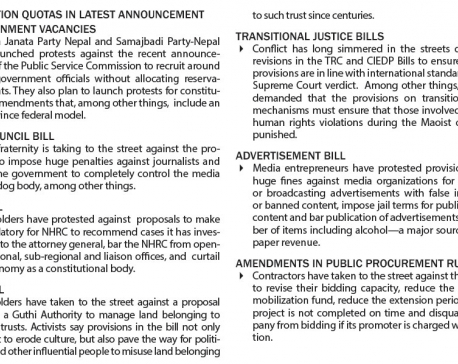
A long hot summer of protests?
KATHMANDU, June 12: There was optimism across the country that protest activities would decline after the formation of a new... Read More...
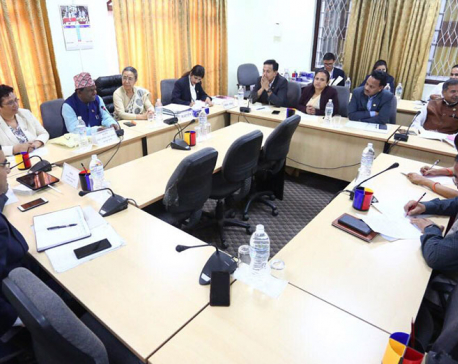
House committee ruling complicates PSC vacancies issue
KATHMANDU, June 12: The directive of parliament's State Affairs Committee (SAC) to scrap the vacancies announced by the Public Service Commission... Read More...
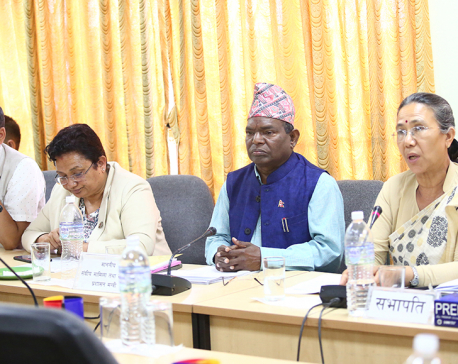
SAC tells govt, PSC to scrap vacancies
KATHMANDU, June 11: The State Affairs Committee (SAC) of the parliament on Monday directed the government and the Public Service Commission... Read More...



Just In
- Lack of investment-friendly laws raises concerns as Investment Summit approaches
- 550,000 people acquire work permits till April of current fiscal year
- Fixing a win by outlawing dissent damages democracy
- MoHP cautions docs working in govt hospitals not to work in private ones
- Over 400,000 tourists visited Mustang by road last year
- 19 hydropower projects to be showcased at investment summit
- Global oil and gold prices surge as Israel retaliates against Iran
- Sajha Yatayat cancels CEO appointment process for lack of candidates








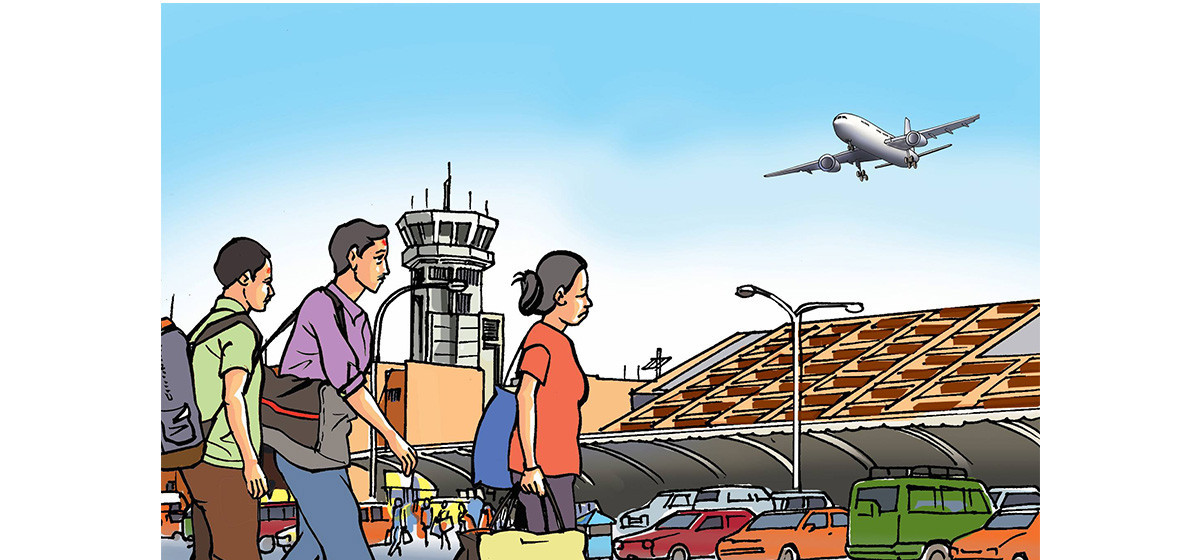

_20220508065243.jpg)


Leave A Comment